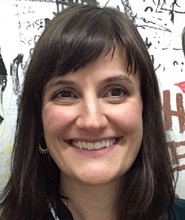
Rethinking humanitarian aid for refugees as investment in urban water and sanitation
Active Project

Lucy Earle’s work focuses on the intersections of urbanisation, urban poverty and humanitarian crises, in particular forced displacement into and within urban areas.
She is especially interested in understanding how refugees and internally displaced people navigate urban systems to meet their basic needs, and how displaced people can engage with local authorities to raise awareness of their needs, priorities and aspirations. Lucy also has a background working on low-income housing, urban citizenship and the right to the city in the global South.
Lucy is currently leading a £3m GCRF-funded project on protracted displacement, comparing the wellbeing and livelihoods of displaced people in camps with those in urban areas. This mixed methods research study is being undertaken in Afghanistan, Ethiopia, Jordan and Kenya. She is also leading interdisciplinary work on the cost of camps, and the potential benefits of hosting refugees in cities.
Humanitarian crises in urban areas, urban forced displacement, low-income housing, urban social movements, participatory governance.
Prior to joining IIED, Lucy was an urban advisor at the UK’s Department for International Development (DFID), now FCDO, and was seconded to the International Rescue Committee (IRC) to support a joint learning and advocacy programme on improving humanitarian response to urban crises.
Education
Promoting understanding of refugee and displaced people’s wellbeing and self-reliance, through comparative research in urban areas and camps, and investigating the costs and benefits of hosting refugees in cities.